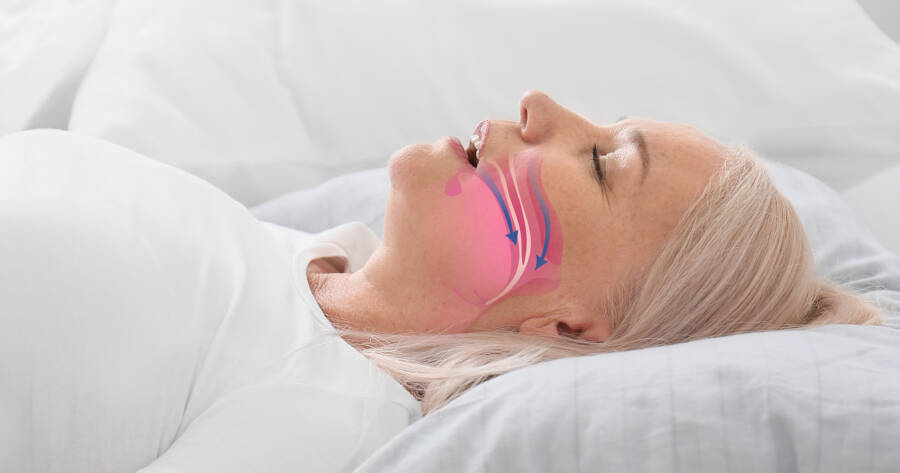Sleep apnea is an underdiagnosed yet serious condition that affects many people. It disrupts sleep, making you wake up feeling exhausted. Fortunately, early detection and treatment can dramatically improve the quality of life for those experiencing sleep apnea.
Understanding Sleep Apnea
Sleep apnea is a sleep disorder that causes your breathing to stop and start repeatedly during sleep.1 The most common type is Obstructive Sleep Apnea (OSA), where the throat muscles intermittently relax and block the airway during sleep. Another type is Central Sleep Apnea (CSA), where the brain fails to send proper signals to the muscles that control breathing. Symptoms often include loud snoring, episodes of breathing cessation, abrupt awakenings accompanied by gasping or choking, and excessive daytime sleepiness.
Recognizing the Symptoms of Sleep Apnea
Identifying the symptoms of sleep apnea is key to getting timely treatment.2 Common signs include loud, persistent snoring, often accompanied by choking or gasping sounds during sleep. Many sufferers experience pauses in breathing, which are usually noticed by a partner rather than the patient themselves. Daytime symptoms may include severe morning headaches, difficulty concentrating, mood changes such as irritability or depression, and excessive daytime sleepiness despite getting a full night’s sleep. These symptoms can significantly impact daily life, making awareness and recognition critical for seeking effective treatment.
Diagnosis Process
Diagnosing sleep apnea usually starts with a review of medical history and a physical examination. Your doctor may ask about your sleep patterns and daytime alertness. They might also recommend a sleep study, known as a polysomnography, which is performed in a sleep lab. This study records your brain waves, oxygen levels in your blood, heart rate, and breathing, as well as eye and leg movements. A simpler test, called a home sleep apnea test, might also be used to diagnose OSA.
Treatment Options
Treatment for sleep apnea can vary based on its severity and cause. Continuous Positive Airway Pressure (CPAP) machines are the most common treatment for moderate to severe obstructive sleep apnea. This machine uses a hose connected to a mask or nosepiece to deliver constant and steady air pressure to keep your airways open while you sleep. Other treatments include lifestyle changes such as weight loss, quitting smoking, and sleeping on your side. In some cases, surgery might be necessary to remove or shrink the tissues blocking the airway, or to reposition the jaw to help keep the airway open.
Managing Sleep Apnea
Aside from medical treatment, managing your condition at home is crucial for living well with sleep apnea. This includes maintaining a healthy weight, avoiding alcohol and sleeping pills, and keeping nasal passages open at night with nasal sprays or allergy medications. It’s also helpful to establish a regular sleep schedule to improve your sleep quality and ensure your body gets adequate rest.
The Importance of Professional Help
If you suspect you have sleep apnea, it’s essential to seek professional help. Sleep specialists can provide you with a diagnosis and tailored treatment plan. Regular follow-up visits are important to adjust your treatment as needed and manage any complications. Early treatment not only improves your sleep quality but also reduces the risk of heart disease, stroke, and other health issues associated with sleep apnea.
Learn More Today!
Sleep apnea is a manageable condition with the right approach. By understanding its causes, seeking appropriate medical evaluation, and adhering to recommended treatments, you can significantly improve your sleep and overall health. This condition does not have to control your life; with proactive management, you can take back your nights and enjoy restful sleep.
